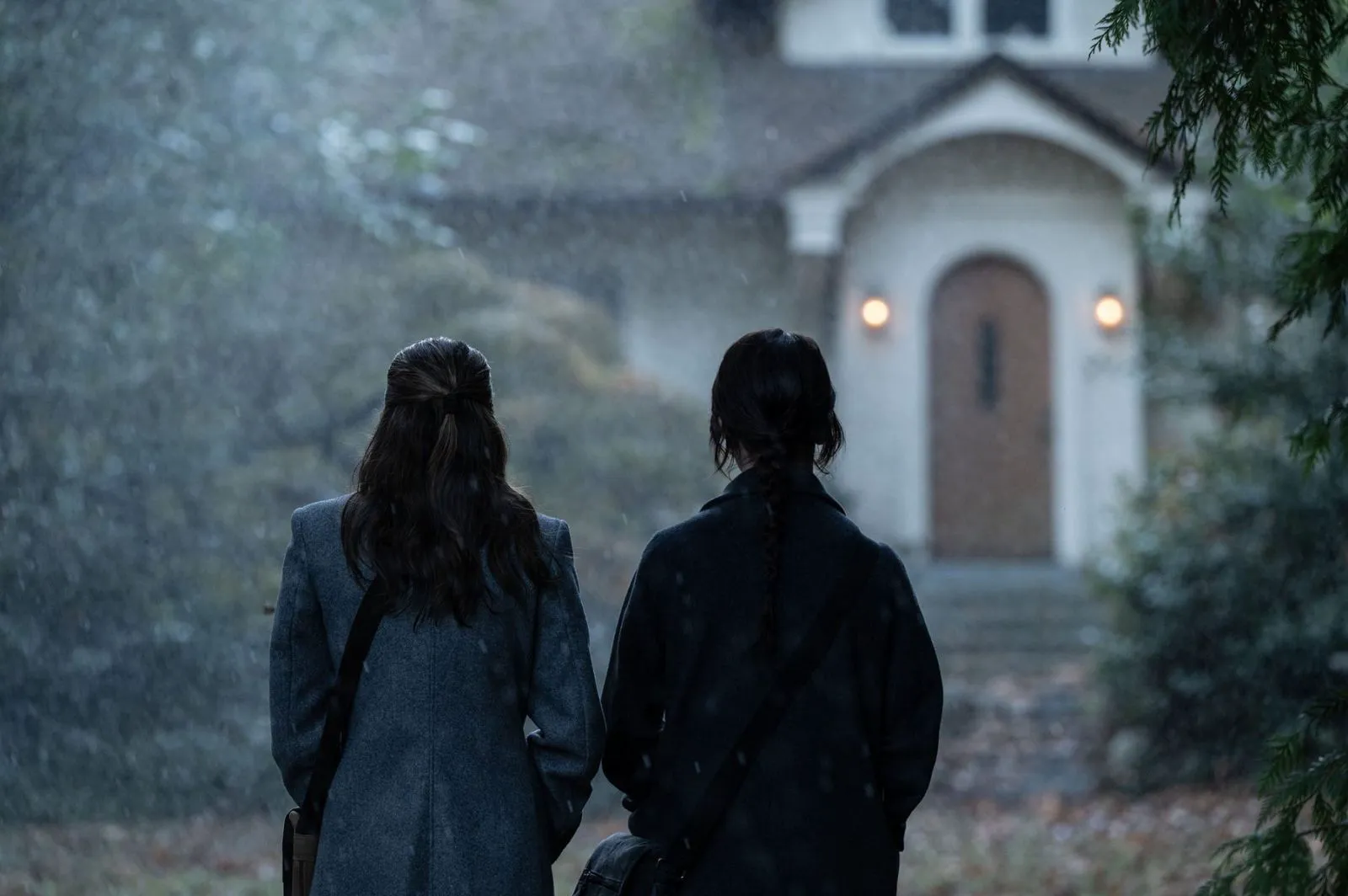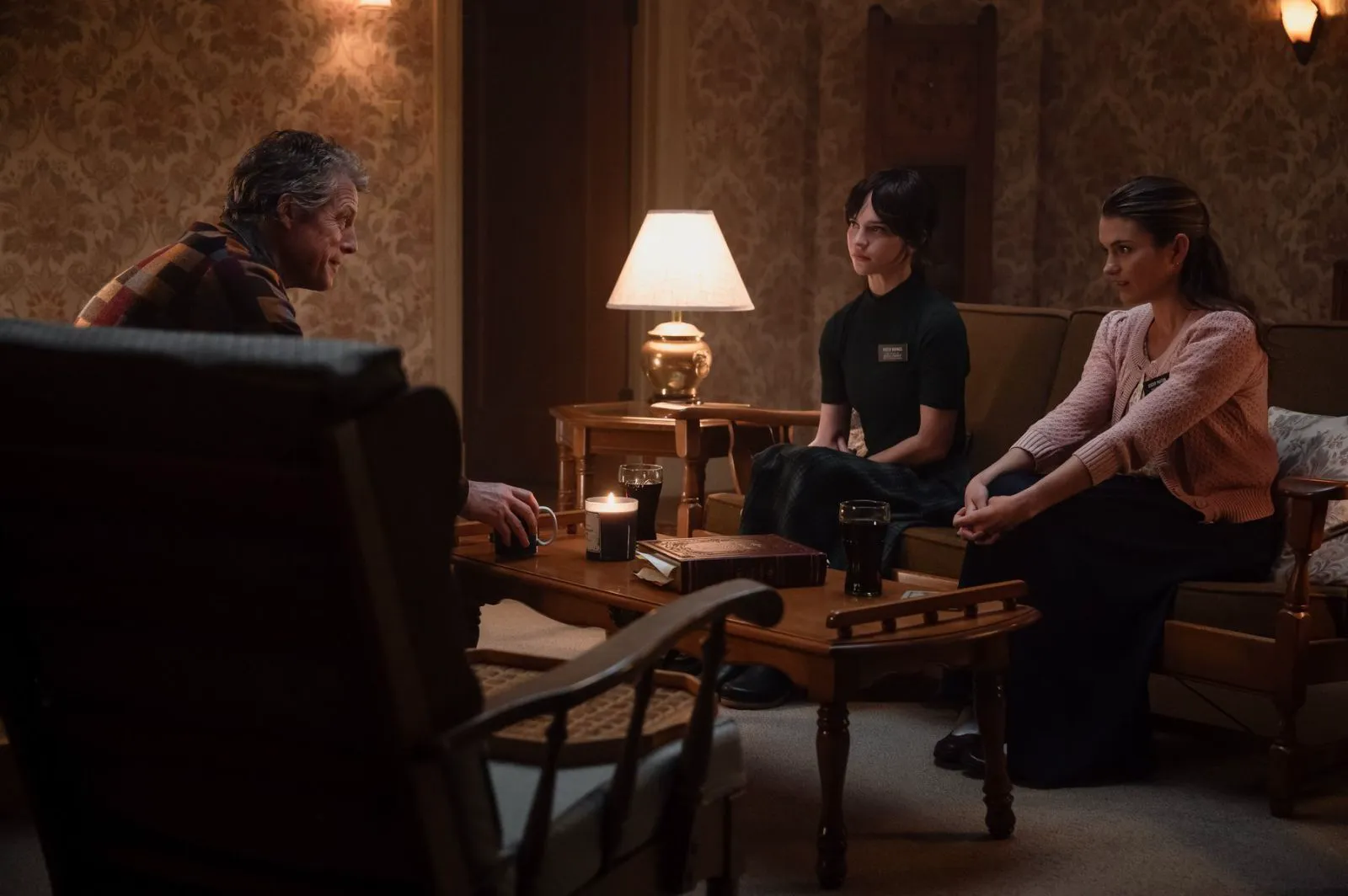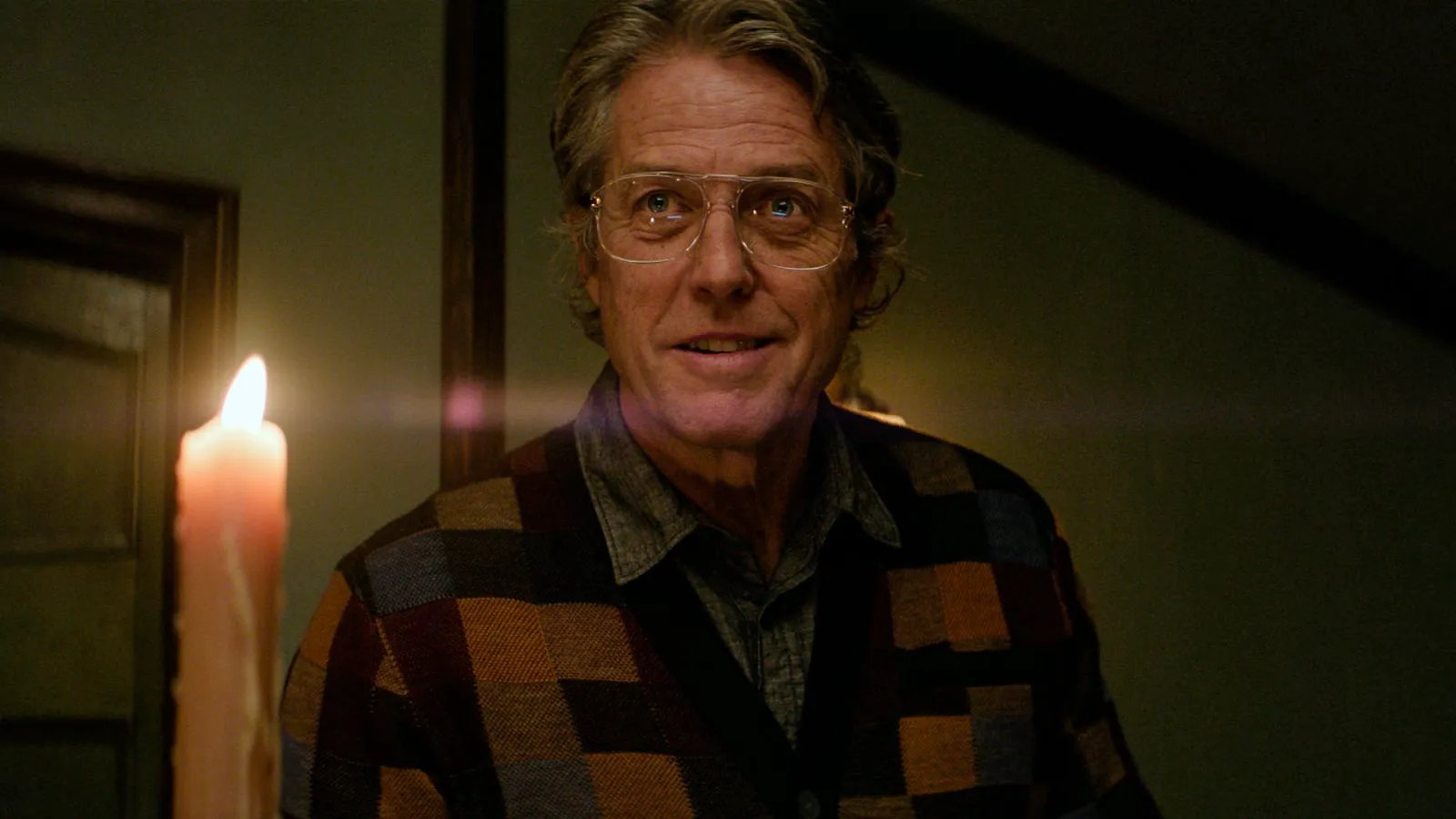Heretic: A Chilling Conversation Starter with a Dash of Horror
Two missionaries from the Church of Jesus Christ of Latter-day Saints, the reserved Barnes (Sophie Thatcher) and the introspective Paxton (Chloe East), embark on another proselytizing tour. A biting wind leads them to a quaint Victorian house nestled deep within a dense garden. Its owner, Mr. Reed (Hugh Grant), a silver-haired intellectual in a checkered sweater, invites the young women in for tea and blueberry pie, an offer they accept. A pleasant conversation about the importance of religion, particularly Mormonism, is soon disrupted by Reed’s provocative statements, suggesting he has some kind of game in mind for his guests. By the time Barnes and Paxton realize they need to escape, it’s already too late.

Chloe East as Sister Paxton in a still from “Heretic”
Released in the post-Halloween lull, “Heretic” could easily fit into the Christmas movie season. Despite its genre billing, Scott Beck and Bryan Woods’ new creation is an existential, even philosophical, film that offers viewers an engaging, awkward, and at times absurd conversation about religion, drawing parallels with pop culture and even board games. Beck and Woods, previously known primarily as the writers of the hit horror film “A Quiet Place” and the directors of the unsuccessful sci-fi action film “65,” have for the first time moved away from so-called “silent” cinema, venturing into the territory of mumblecore. The fact that “Heretic” is largely a talky film is clear even from the trailer, but none of the creators claim that this is its best part. In a recent interview with Variety, Beck and Woods admitted that Hugh Grant’s character’s weighty monologues were based on their own friendly discussions. Perhaps this is why the lines feel so alive and engaging. At some point, Mr. Reed’s game goes beyond the screen, and viewers themselves are asking “why,” questioning the morality of religion and the very existence of God.
Hugh Grant’s Masterful Turn as Mr. Reed

Hugh Grant as Mr. Reed in a still from “Heretic”
To their credit, Beck and Woods don’t linger in the “gray area” for long: after a couple of convincing punchlines and amusing references to Lana Del Rey and Jar Jar Binks, Mr. Reed loses the last vestiges of his checkered coziness, turning into a trivial psychopath – no better than Andrew Scott’s James Moriarty or Mads Mikkelsen’s Hannibal Lecter, but no worse either. Former heartthrob Hugh Grant is in himself the best PR move for “Heretic” and probably the only significant reason to watch the film. The actor, who, by his own admission, has entered a “freak show era” of his career (it’s hard to forget his amusing transformation into an Oompa-Loompa in “Wonka”), continues to explore the dark side of the human soul. It is important to note that Mr. Reed is far from the first antagonist in his filmography. Nominally, the moral degradation of Hugh Grant’s characters began back in “Bridget Jones’s Diary” (Daniel Cleaver is quite the scoundrel), but the first real villain played by the actor only happened in “Cloud Atlas,” followed by no less dark roles in “Paddington 2” and, for example, “Dungeons & Dragons: Honor Among Thieves.” By the time he started working on “Heretic,” Hugh Grant had finally become comfortable in the role of the “bad guy,” as evidenced by his incredible ease on screen: a malicious grin and a British accent – a perfect combo!

Hugh Grant as Mr. Reed in a still from “Heretic”
A Descent into Genre Tropes
Alas, with the beginning of the third act, the pace of “Heretic,” set by intellectual conversations, slows down significantly, and entertaining metaphors are replaced by nonsense and games of “cat and mouse.” It feels like Beck and Woods didn’t have enough energy for two hours – they fail to steer the story into a non-trivial genre channel, and “Heretic” slides into a mediocre low-budget horror film about a victim and a maniac. Even the attractive stylization – symbolic symmetry and optical illusions in the frame, emphasizing the duality of everything that is happening – is eventually lost. Only Hugh Grant’s enthusiasm remains, and, like a true gentleman, he carries the film to the very end.
In any case, “Heretic” is a worthy work on the mistakes of Beck and Woods after the frankly failed “65,” which almost put an end to their creative career. It is symptomatic that the screenwriters’ new project touched on the theme of religion. In the future, both plan to drop anchor at the pier of conversational cinema, which should inspire some audience confidence, especially if their next film also stars Hugh Grant.